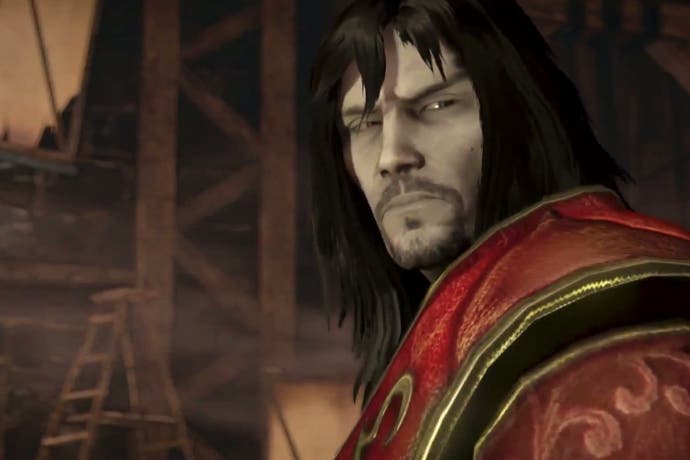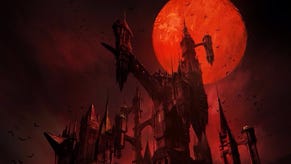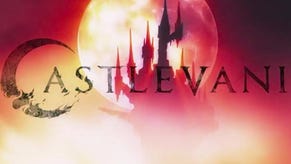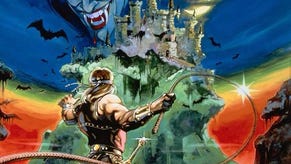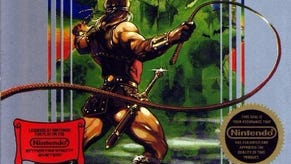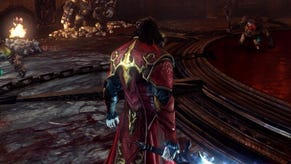Castlevania: Lords of Shadow 2 review
Fang service?
Over three years after the release of the original Lords of Shadow, the things I remember about it are all pretty good. MercurySteam's first attempt at a Castlevania game may have ditched the cartographical intricacy that made the series so satisfying in 2D, but it offered players a sumptuously rendered 3D action-adventure instead, and delivered it with real spirit. Uncharted-style platforming across expansive outdoor levels was mixed with clean, crunching combat against a variety of towering foes; a stoic Belmont took the fight to the forces of ancient evil and was - eventually - consumed by vampirism himself.
Lords of Shadow 2 plays many of the same cards, but I doubt I'll ever recall it quite as fondly. The nimble platforming and the combat both return - now coupled to a player-controlled camera that behaves pretty well and feels like a natural fit - and Gabriel Belmont's back too, newly cast as Dracula, and nursing the mother of all undead hangovers. This is a far more ambitious game, however, and it's not always successful in those ambitions. In its shift to a contemporary urban setting it loses a lot of the earlier game's cinematic sense of scale and place. In its desire to draw a handful of wayward plotlines towards some kind of conclusion, it sacrifices pace and coherency in the service of a story that, ultimately, isn't really worth the hassle.
But still, all change: Dracula awakes in the present day to find that he's an old, dribbling wreck, and that a massive glass and steel city has risen up around his crumbling castle while he's slept. He's dragged back into action by his old pal Zobek, now some ill-defined manner of horror executive with a suit and a cigar, and he's told about a dangerous new threat to civilisation. A team of depraved acolytes are trying to resurrect Satan, which will presumably be bad news for everyone, even a bloodsucking vampire who's killed most of his own family. If Dracula will help Zobek stop the antichrist's reappearance, Zobek will allow Dracula to find eternal peace. This narrative seems simple enough, perhaps, but the developers immediately get lost within it.
A big part of the problem is Dracula himself. Lords of Shadow 2 wants to give you a taste of the danger that comes with playing as a bad guy, but it also has to make you feel like a hero at the same time. This allows for some health-recovery moves such as the ability to finish enemies by drinking their blood, but it also leads to an embarrassing grinding of gears as disparate narrative impulses converge.
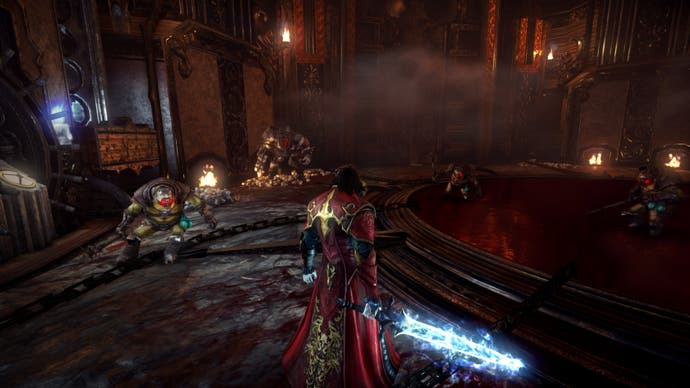
Early on, you're given a heavy-handed shock moment: anything but basic control is wrested from you - always a killer sign that you're about to be blown away by a video game - and Dracula finds himself in some poor family's presence, facing a terrified mum, dad and child, and hungry for claret. Dracula duly feasts and is restored to youthful vigour but, for all the obvious attempts to build an incident that will stick with you, the whole sequence is not particularly memorable or effective. It's too much, too early, with too little meaningful context, and it's confused by a distinct hint of sexuality to the violence that the game's not capable of addressing in any meaningful or adult manner. (At least this meshes with the rest of the adventure, which unfailingly hands out many of its most graphic punishments to female baddies.)
The episode is also partially undermined almost immediately by the revelation that the triple murder has been a set-up by someone else. Dracula's bad - but he's not that bad. He kills innocent people, but often because somebody's tricked him into it. Seconds later, the moment is completely forgotten - and with that, the last of its integrity and purpose is sent crumbling into the abyss.
Beyond the conceptual vagueness that dogs the leading man - he looks, for most of the game, like an ageing WWE legend wandering around in one of Elvis' dressing gowns and suffering the effects of over-exposure to Just for Men: Touch of Grey - the rest of the story quickly starts to turn in circles as well. Tracking the acolytes through a gothic metropolis suggests a fairly straightforward objective for a game about hitting people and drinking their blood. MercurySteam wants to tie the entire series up, though - even the 3DS instalment - and that means going back into Dracula's past, too, returning him to his castle as it existed in some mysterious dreamy yesteryear, and allowing him to have some kind of catharsis with his family.
What you end up with is a well-intentioned plot that's simply trying to do too many things - where the hunt for acolytes is soon confused as you track down pieces of magic mirror to cheer up your own ghostly son, for instance. There are too many distractions, too many dimly explained agendas, and - between Dracula's castle and the dark, European city waiting beyond its gates - too many environments waiting to blur into one another.
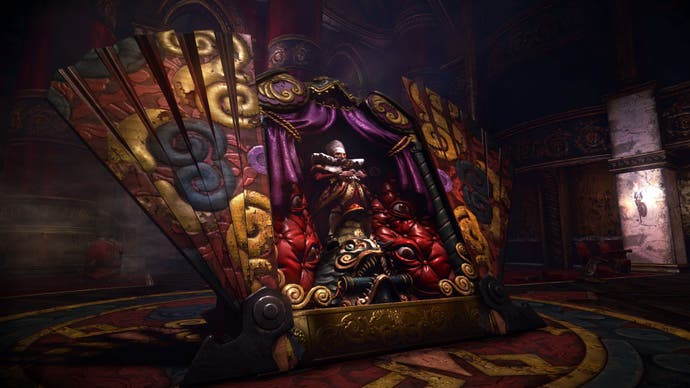
This is perhaps the game's biggest disappointment, since the new setting, and the design team's judicious referencing of Zelda in the run-up to release, suggested that the linearity of the first Lords of Shadow was being replaced with something that allowed for a little more exploration - possibly even something in keeping with Konami's beloved 2D series. In truth, you do get to explore, but only after a good three hours of stilted, cut-scene-riddled hand-holding, and your freedom is too compromised to make much of an impact when it arrives.
There's no Hyrule Field moment where you suddenly get a huge vista presented to you with a sense that you can pick a path at random and discover something brilliant at the end of it. Instead, Castlevania's city is shattered into elbowy chunks of corridors and arenas - a poky maze of dead ends and boring collectables where an early plot twist has gotten rid of most of the pedestrians and turns the whole place into a warzone anyway. You will indeed backtrack through this landscape and hunt out old doors that new abilities will finally open, but amidst the alleyways, crawlspaces, gantries and lobbies, there's no sense of a meaningfully connected or characterful space, or of a landscape with much in the way of variety either.
Despite the odd ballroom or weapons manufacturing HQ, Castlevania's city simply refuses to take root in your mind as an actual place. Its most tantalising - and Hugh Ferriss-tinged - views are all painted onto lofty skyboxes, and its fumbling lunges at urbanism look like street corners from the bad 1980s backlot set of a gangster movie, possibly starring Chuck Norris. There are moments of real artistry - few games have splintered marble with such style or lit dripping pipework so indulgently - and Dracula's castle offers treats like a cathedral spire surrounded by loops of chains, set in the noble darkness of a cave. But away from such stand-outs, one location quickly becomes indistinguishable from another as hospital rooms blend with industrial workshops and hotel antechambers give way to church basements. Fuse boxes? Must be in the city. A portcullis? I'm probably back chez Vlad.
Meanwhile, although regular attempts at mechanical invention suggest the design team's approaching the game with plenty of energy, too many of its ideas fall flat. Lords of Shadow 2 is still at its most comfortable when it's leading you from one set-piece where you have to kill everyone to another where you have to kill everyone, maybe with the odd lock-and-key section or a vertiginous clamber over the masonry in between. When it tries to extend the platforming, it merely reveals how mindless and assisted it is. When it provides more elaborate puzzles, such as a section where you shunt a snaking bridge around the underworld, the game's limited imagination quickly renders them tedious. When it tries stealth - when it enforces stealth - things get much, much worse.
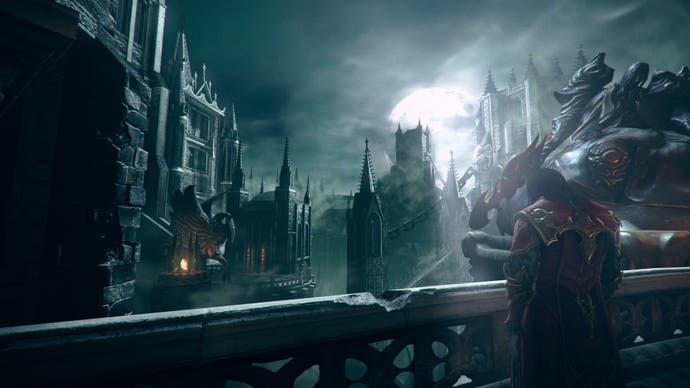
Castlevania's new stealth sections are numerous and uniformly botched, but they didn't have to be. Your options include the ability to sneak around at floor level as a crowd of rats, blind enemies with swarms of bats, turn to mist - this is good for slipping through grilles - and even possess any patrolling brutes if you can get behind them long enough. And yet such promising tricks are employed in fiddly, cramped scenarios where there's generally only a single correct solution that the game will accept. If you try to experiment - which should be a big part of the fun of stealth - you'll be caught and sent back to the last checkpoint. And, as the game reloads, you'll be left to reflect on the fact that the whole thing doesn't really make much sense anyway. Not only are the stealth environments littered with potentially useful ladders and crates and vents that turn out, as often as not, to be empty decoration, but you're Dracula. You spend the rest of the game beating up enemies the size of the moon - and now suddenly a few armour-clad guards with oversized guns or courtyards littered with the odd pile of crinkly leaves are too much for you?
Not all of Castlevania's distractions are as bad as this, of course. Bosses are thrown your way with creativity and enthusiasm and cover a laudable range of shapes and sizes - although the best are, inevitably, the smallest and the most nimble. Then there's the odd section where the pieces align and the whole game suddenly shudders to life. Exploring the frosty outcrops of Dracula's castle, you'll come across the Toy Maker's theatre, where a gorgeously realised sequence draws you through an inventive programming puzzle and into a protracted multi-stage boss-fight against hulking wooden puppets. Suddenly, Lords of Shadow 2 finds its feet for a few minutes, and it's a delight to be a part of.
It can't last, alas. The Toy Maker feels like he's been airlifted in from a different game. The gantries and the alleyways and the indistinguishable arenas are waiting for you to return - as are the rats and the patrolling guards and the ladders that aren't really ladders, nested alongside the ladders that are.
"The first Lords of Shadow was a sweet surprise. The follow-up is a hostage to a story it tells badly, and a prisoner within a dull urban maze"

Ultimately, it's the combat that gives the bulk of this long, generous and perhaps rather clumsily made game its greatest pleasures, and that's a relief, since there's an awful lot of it. It's not truly top-class technical fighting by any means, but it is stylish and forceful and enlivened with welcome spite. Alongside Dracula's whip, which replaces his old combat cross, he can switch between a sword powered by Void magic, which allows him to regain health, and claws powered by Chaos, that let him pour on the damage, breaking through shields and other kinds of armour. Both of these are smartly reworked from the first game's Light and Shadow magic, and they're fuelled by orbs you earn by dealing out punishment while taking none in return.
This is clever stuff, since it forces even day-tripper players to engage with the full sweep of combat, mastering the dodge, the launcher and - even better - the block manoeuvre, which comes with a handy stun. Beyond that lie projectiles - one for each weapon type - and relics that allow you to do things like slow time and assume a dragon form. Sure, the combos and the upgrade tree tend to be fairly uninspiring, the frame-rate's stuck below 60fps (to my admittedly untrained eye), and some of the combat animations are a little too ponderous and inflexible to allow any of this to rival the greats of the genre. It's still gently tactical fun to slog away at everyone who comes your way, though, and while truly interesting foes to battle against are rare, the design mixes things up every now and then as it chucks in enemies that range from weird mantis-like clockwork soldiers to a short set-piece section that stops you from regaining lost health.
The ferocity of the combat - it's bluntly realised at times, but it's undeniably potent - means that Lords of Shadows 2 is a little more fun over the long term than its many failings might suggest. It's generally a pleasant enough way to fritter away 15 or 20 hours, but you're unlikely to see anything new or distinct, or even to experience the panoramic opulence the original adventure provided.
Sharpening the disappointment is the fact that the team at MercurySteam has already made a good game, and perhaps had an opportunity here to make a great one. The first Lords of Shadow was a sweet surprise. The follow-up is a hostage to a story it tells badly, and a prisoner within a dull urban maze that refuses to become a characterful exploratory playground. To live on but to be diminished - that's the fate of the vampire in Castlevania's lore. Sadly, it's a bit of an epitaph for this well-meaning but bloated game as a whole.
If you're looking for a little help with the game, take a look through our Lords of Shadow 2 guide.
